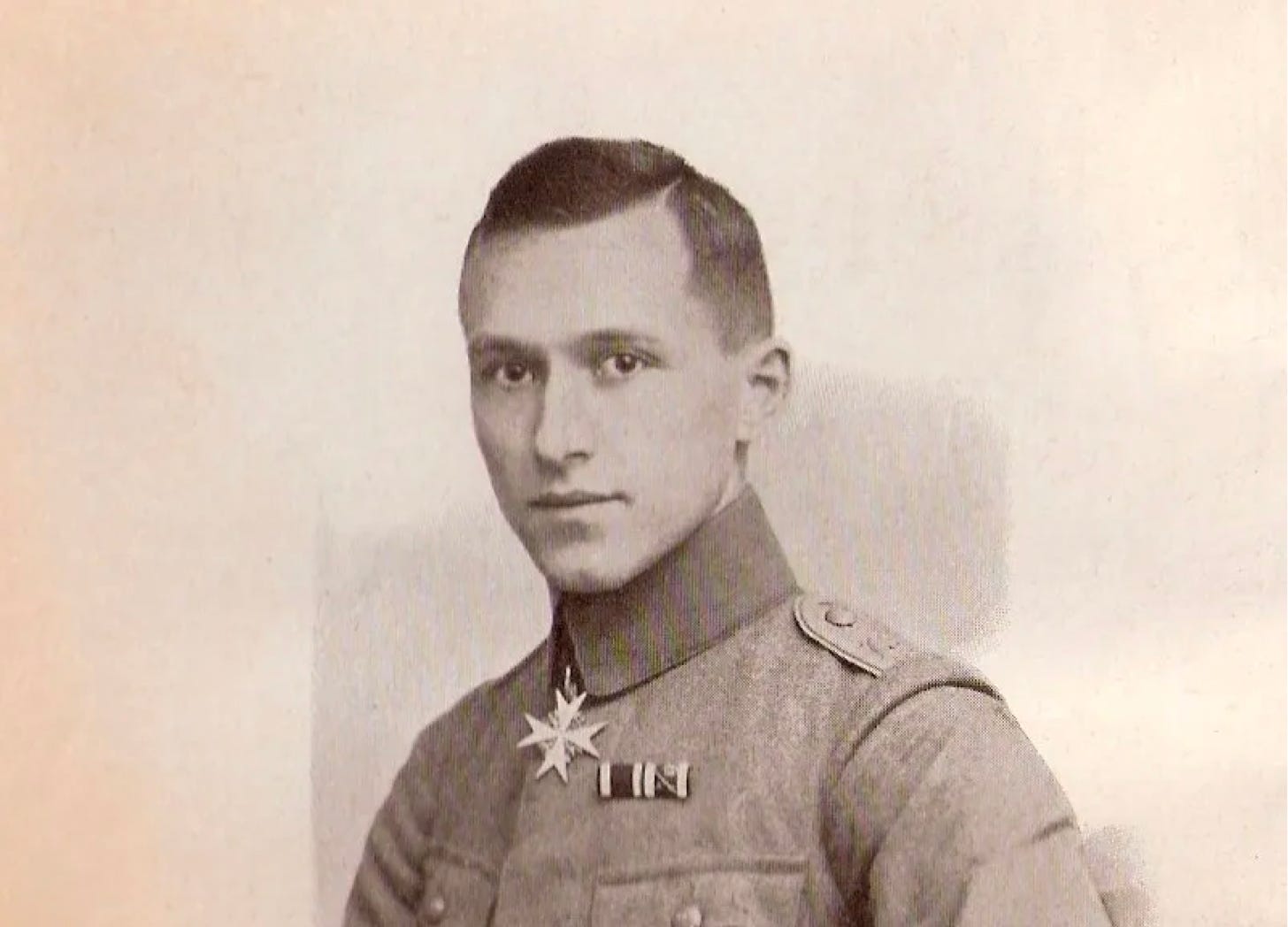Ernst Jünger on the Speed of Attacks (Part I)
Über Angriffsgeschwindigkeit
The following post begins the serialization of a translation of an article written by Ernst Jünger soon after the end of the First World War. It was published, under the title On the Speed of Attacks [Über Angriffsgeschwindigkeit] in the issue of the Military Weekly [Militärwochenblatt] published on 15 May 1923.
The new Training Manual for Infantry makes much of the systematic suppression of enemy resistance in the deep zone. This deep zone, which must also be dealt with in open warfare, presents itself to the attacker as a network of resistors [Widerstände], great and small, connected by fire. In accordance with the time and resources available to him, as well as his skill in exploiting terrain, the enemy will succeed in creating a system of surprises of various kinds, each aimed at catching a thrust in a trap.
Carefully camouflaged nests, hidden obstacles, rapidly built earthworks, approach trenches [Annährungen], all of which will be covered by carefully organized and combined fires; counter-thrusts by mobile reserves supported by tanks and ground-attack aircraft; well-observed time-on-target artillery strikes [Vernichtungsfeurschläge] dropped here and there - in short, a multi-sided host of defensive means awaits the attack, in order to knock it down in the main line of resistance [Hauptwiderstandslinie] with combined effects emerging from the deep zone or to present it with so many challenges of so many different kinds that it falls apart before achieving a breakthrough.
As the attacker also seeks to draw his strength from the depth, today’s battle resembles the forward movement of a force field which pushes its glowing edge into another. The speed with which the attacker manages to melt into the depth of the enemy position is one of the most important advantages that the attacker can obtain. It depends upon strength, armament, and the excellence of its training in deep combat [Tiefenkampf.]



I have long advocated for Jünger’s book Storm of Steel to be a part of the required reading list for combat arms officers. To no avail. Jűnger was one of the most remarkable soldiers and men of the 20th Century and virtually unknown in the US. That is to our professional detriment.
I have a copy of Storm of Steel and its one of the few books I've read repeatedly. He truly was a remarkable man.